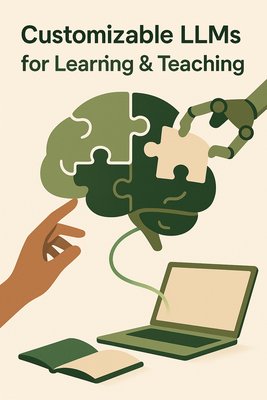Singleview
Tue, 29. Jul 2025 Korn, Falco
Unlocking the Future of Education: QVM-Funded LLM Project Launches at SITM
We are excited to announce that our chair has secured QVM project funding to develop a configurable language model designed to support teaching and learning. This initiative marks a significant milestone in our ongoing efforts to integrate generative AI into university education in an accessible, meaningful, and responsible way.
Project Overview
The goal of our project is to build, expand, and test a language model specifically tailored for selected courses within our faculty, with the long-term vision of creating a modular system for AI-driven teaching and learning assistance across the entire university. By systematically integrating curated teaching materials, course-specific content, and institutional guidelines, our configurable language model will serve as a context-aware support system for both students and educators.
Intended key benefits of our configurable language model for teaching and learning
For Students:
- 24/7 support: Help is available anytime, especially for self-study and exam preparation.
- Personalized, context-aware answers based on course content.
- Lower barriers to getting assistance, encouraging independent learning.
- Improved organization of study materials for easier access.
- Opportunities to build digital and AI literacy skills.
For Instructors:
- Significant time savings in creating exercises, exam questions, and structuring teaching materials.
- Didactic inspiration through suggestions for learning objectives, syllabi, and teaching methods.
- Streamlined organization of learning content and processes.
- Transparent sharing of experiences, enabling others to adapt and reuse the system.
- Continuous model improvement through feedback, ensuring relevance and educational value.
What’s Next?
The project will roll out in several phases: from curating and processing relevant teaching materials, to technical development and integration, to real-life testing with selected user groups. Ultimately, the documented results will serve as a foundation for a “toolkit” that enables other faculties to build configurable, AI-powered language model applications for their courses.
With this approach, we aim to advance the digital transformation of teaching at UDE and promote a reflective, responsible use of AI in academic education.
We look forward to sharing regular updates as the project progresses and contributing to UDE’s leadership in innovative, student-centered teaching.
Latest News:
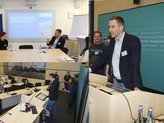 Prof. Ahlemann @KoMet Day 2025 – Green Transformation Ruhr09.12.25
Prof. Ahlemann @KoMet Day 2025 – Green Transformation Ruhr09.12.25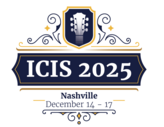 SOFTEC contributes research on GenAI-based user simulation at ICIS 202504.11.25
SOFTEC contributes research on GenAI-based user simulation at ICIS 202504.11.25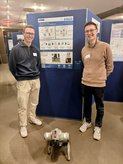 SOFTEC at the Day of Computer Science 2025: Research on Compassionate AI30.10.25
SOFTEC at the Day of Computer Science 2025: Research on Compassionate AI30.10.25 New Research Associate: Deniz Baris Gölgelioglu10.10.25
New Research Associate: Deniz Baris Gölgelioglu10.10.25 IS-Project? SITM got you! Information event on Bachelor/Master Projects on 13.10.2509.10.25
IS-Project? SITM got you! Information event on Bachelor/Master Projects on 13.10.2509.10.25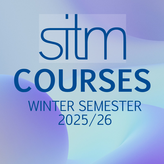 Our Courses for Winter Semester 2025/26 @SITM01.10.25
Our Courses for Winter Semester 2025/26 @SITM01.10.25 Studienprojektthemen für das WS25/26 jetzt online30.09.25
Studienprojektthemen für das WS25/26 jetzt online30.09.25

